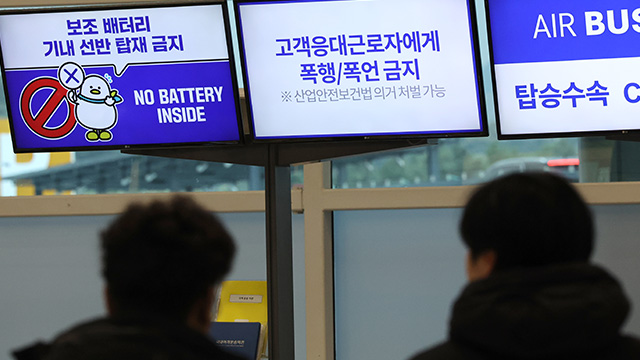[News Today] Life-sustaining treatment: When to stop?
입력 2025.06.10 (15:54)
수정 2025.06.10 (15:55)
읽어주기 기능은 크롬기반의
브라우저에서만 사용하실 수 있습니다.
[LEAD]
Interest in ending life-sustaining treatment is rising as Korea enters a super-aged society. Currently, the law permits suspension only when death is imminent. But a recent survey shows more than 80 percent of experts support allowing it earlier, at the terminal stage.
[REPORT]
This patient with terminal stage lung cancer was brought to a university hospital ER early this year.
The patient had already signed a "Do Not Resuscitate" document before being brought to the hospital, after which the patient was unresponsive for over two weeks.
The patient's family requested that no emergency ventilator be used and that the patient is allowed to die peacefully.
However, the doctors had no choice but to wait until the patient's condition got worse.
Under the current law, life-sustaining treatment can only be halted during the so-called dying process, when death is imminent.
Prof. Yoo Shin-hye / Seoul National University Hospital
Doctors believe that waiting causes more suffering to patients and is a waste of resources. Patients' family also don't want to just wait and watch.
KBS has acquired a government research report on the topic.
Of the 27 representatives of medical societies, most of whom consist of medical college professors, 82% said the time of suspending life-sustaining treatment should be brought forward from the dying process to the terminal stage.
The report says the terminal stage refers to a patient's condition when he or she may pass away within months, meaning if life-sustaining treatment is halted earlier, the patients' right to decide for themselves can be guaranteed to a greater extent.
This means no clear distinction will be needed between the dying process and the terminal stage in order to stop life-sustaining treatment.
Prof. Lee Il-hak / Yonsei University College of Medicine
The Korean law strictly distinguishes between the start of the dying process and the terminal stage. But clinically it's very difficult to differentiate the two.
The Ministry of Health and Welfare has vowed to collect public opinion based on the results of the research to achieve a social consensus.
■ 제보하기
▷ 카카오톡 : 'KBS제보' 검색, 채널 추가
▷ 전화 : 02-781-1234, 4444
▷ 이메일 : kbs1234@kbs.co.kr
▷ 유튜브, 네이버, 카카오에서도 KBS뉴스를 구독해주세요!
- [News Today] Life-sustaining treatment: When to stop?
-
- 입력 2025-06-10 15:54:34
- 수정2025-06-10 15:55:48
[LEAD]
Interest in ending life-sustaining treatment is rising as Korea enters a super-aged society. Currently, the law permits suspension only when death is imminent. But a recent survey shows more than 80 percent of experts support allowing it earlier, at the terminal stage.
[REPORT]
This patient with terminal stage lung cancer was brought to a university hospital ER early this year.
The patient had already signed a "Do Not Resuscitate" document before being brought to the hospital, after which the patient was unresponsive for over two weeks.
The patient's family requested that no emergency ventilator be used and that the patient is allowed to die peacefully.
However, the doctors had no choice but to wait until the patient's condition got worse.
Under the current law, life-sustaining treatment can only be halted during the so-called dying process, when death is imminent.
Prof. Yoo Shin-hye / Seoul National University Hospital
Doctors believe that waiting causes more suffering to patients and is a waste of resources. Patients' family also don't want to just wait and watch.
KBS has acquired a government research report on the topic.
Of the 27 representatives of medical societies, most of whom consist of medical college professors, 82% said the time of suspending life-sustaining treatment should be brought forward from the dying process to the terminal stage.
The report says the terminal stage refers to a patient's condition when he or she may pass away within months, meaning if life-sustaining treatment is halted earlier, the patients' right to decide for themselves can be guaranteed to a greater extent.
This means no clear distinction will be needed between the dying process and the terminal stage in order to stop life-sustaining treatment.
Prof. Lee Il-hak / Yonsei University College of Medicine
The Korean law strictly distinguishes between the start of the dying process and the terminal stage. But clinically it's very difficult to differentiate the two.
The Ministry of Health and Welfare has vowed to collect public opinion based on the results of the research to achieve a social consensus.
이 기사가 좋으셨다면
-
좋아요
0
-
응원해요
0
-
후속 원해요
0















이 기사에 대한 의견을 남겨주세요.